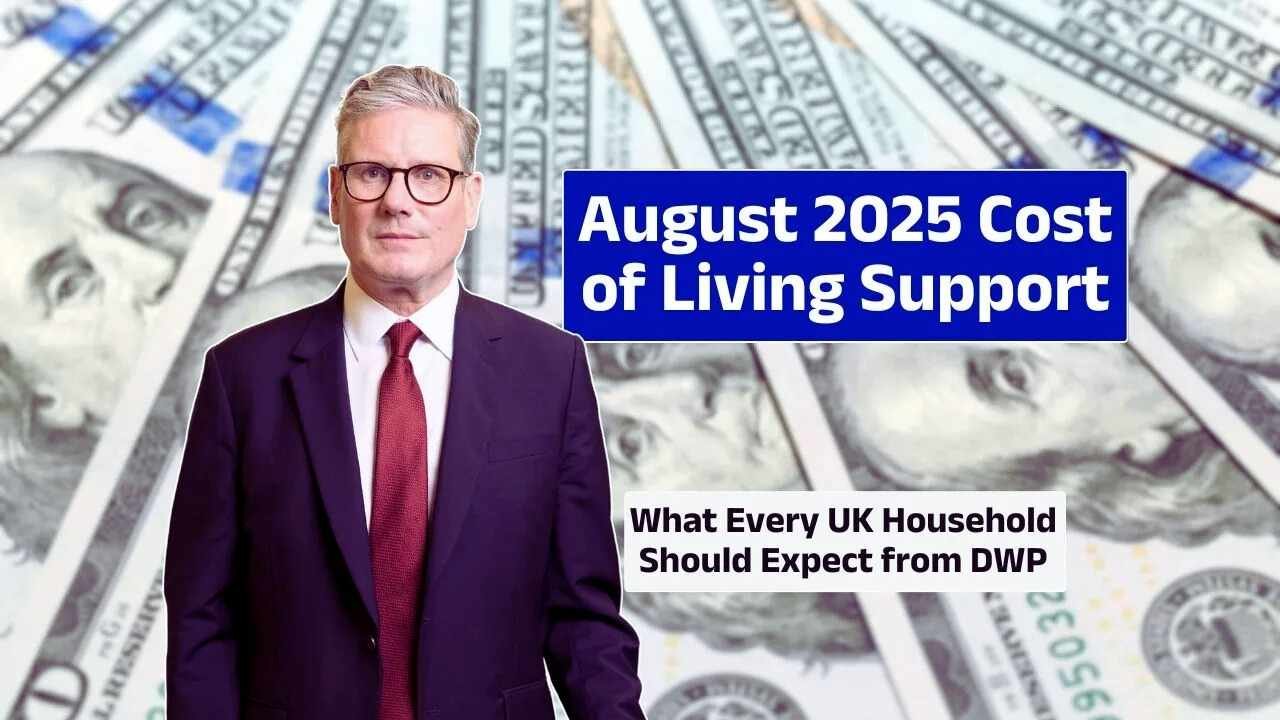No New £299 Payment This Year
The UK government has made it clear that the £299 Cost of Living Payment, which helped millions in February 2024, won’t be coming back in August 2025. That payment was the last part of a £900 support package rolled out between 2022 and 2024 to help people struggling with rising prices for food, energy, and rent. The Department for Work and Pensions (DWP) says the focus has now shifted to other ways to support low-income families, pensioners, and disabled people. Inflation has dropped below 3%, and the government is prioritising long-term plans like moving everyone to Universal Credit by 2026.
Who Got the £299 Payment Before?
The £299 payment went to people on certain benefits between November 13 and December 12, 2023. These included Universal Credit, Income-based Jobseeker’s Allowance, Income-related Employment and Support Allowance, Income Support, Pension Credit, and Child or Working Tax Credits. It was paid automatically, with no need to apply, and only one payment was given per household. If your Universal Credit was reduced to £0 during that time (unless due to specific deductions), or if your tax credit entitlement was under £26, you didn’t qualify. Those who missed out but think they were eligible can still check with the DWP or HMRC, especially if their claim was backdated or corrected.
Other Support You Can Get in 2025
Even without the £299 payment, there are still ways to get help if you’re struggling. The Household Support Fund (HSF) is a big one, extended until March 2026 with £742 million in funding. Local councils use this to give out cash, supermarket vouchers, or help with energy bills, but what you get depends on where you live. For example, some councils like Medway offer up to £225 in vouchers, while others like Torbay give £100 for essentials like food or fuel. You don’t always need to be on benefits to qualify, but you’ll need to show you’re in financial hardship. Check your council’s website for details.
More Ways to Ease the Pressure
Beyond the HSF, there are other schemes to help with costs. Here’s a quick look at what’s available:
| Support Scheme | What It Offers | Who Can Get It? |
|---|---|---|
| Warm Home Discount | £150 off electricity bills | Low-income or benefit recipients |
| Winter Fuel Payment | £150–£300 for heating costs | Pensioners on Pension Credit |
| Budgeting Advance Loan | Up to £812, interest-free | Universal Credit claimants |
You can also apply for Pension Credit if you’re over State Pension age, which might unlock extra help. Charities like Citizens Advice and Turn2us can guide you to unclaimed benefits, with billions going unclaimed each year. Energy suppliers often have hardship funds, and some councils offer Council Tax reductions or emergency grants.
Could Another Payment Happen?
While no £299 payment is planned, some experts think the government might step in if prices spike again. Dr Eleanor Hughes, a professor at the University of Manchester, says sudden inflation or political pressure could lead to new emergency payments, possibly aimed at specific groups like families or disabled people. For now, though, the focus is on existing support like benefit increases (up 1.7% in April 2025) and local funds. Keep your details updated with the DWP and check GOV.UK for official updates to avoid scams promising fake grants.
Stay Proactive to Get Help
With living costs still high, it’s worth checking what you’re entitled to. Use benefit calculators like Entitledto or Turn2us to see if you’re missing out. Contact your local council for HSF applications, and don’t fall for texts or emails asking for personal details about cost of living payments—they’re likely scams. By staying informed and acting early, you can tap into the support that’s still out there to help make ends meet in 2025.
